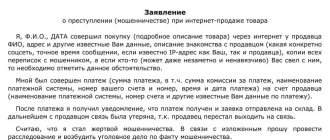- Legal entity by inheritance
- Inheritance of securities (shares)
- Inheritance of options
With the development of market relations, types of property have appeared, the inheritance of which is complicated by their specificity. The inherited estate often includes enterprises, organizations (LLC and other organizational forms), securities (most often shares). Some of them are movable and immovable things, and some are property rights. The notary conducting the case explains to the heirs the specifics of their rights and obligations in connection with the acceptance of such an inheritance.
Legal entity by inheritance
The property rights of deceased members of organizations are inherited. However, depending on the organizational form of the company, in some cases you can inherit a share (contribution, share) and become a full participant in the company, and in others you can only receive the value of such a share. The general rules of inheritance of organizations are regulated by Ch. 1176 of the Civil Code of the Russian Federation, and private norms are established by the relevant law and the constituent documents of the company.
- In the event of the death of a participant in a general partnership, his heirs may join the company with the consent of other participants if this is provided for by the company's charter. The inheritance includes the deceased’s share in the share capital, and the rights and obligations associated with it.
- The simplest case relates to inheritance of shares. The legal successors who receive them unconditionally acquire the rights of a JSC participant. Restrictions may occur in the case of a non-public entity (CJSC).
- In a production cooperative, shares are inherited. If its charter does not provide for restrictions, the successor may become a member of the cooperative. Minor heirs are paid the value of the share.
- Inheritance of the authorized capital of an LLC after the death of the testator is possible if, according to its Charter, the consent of other participants is not required for this. If it is necessary and not received, the heir is entitled to a proportional cash equivalent.
Inheritance of securities (shares)
Securities can have a tangible form (a paper certificate) or a non-documentary form - an entry in the Register defining the rights of the testator. In the latter case, the notary makes a request:
- to the registrar to receive an extract on the number, value and ownership of shares;
- to a specialized depository - to obtain information about mutual fund units;
- to the issuer of bonds (borrower) - upon inheritance of this type of securities.
Among their wide variety of securities, one can distinguish bearer papers, order papers (indicating a specific person) and registered papers (most often shares). The latter most often become the object of inheritance. According to the Civil Code, they are included in the inheritance of a deceased JSC participant along with his rights. The heirs become members of the joint stock company. Features of inheritance of shares:
- they go into the common shared ownership of the heirs, if specific shares are not determined by the will;
- shares can be divided among legal successors by agreement;
- a participant in shared ownership has the right to demand the allocation of his share from the common property;
- Shares acquired during marriage are considered marital property and may be allocated as marital interest.
Problems arise when, for example, 2 shares are divided between three assignees. In this case, the emergence of fractional shares is inevitable. This significantly limits the rights of heirs. According to the law on joint stock companies, only one participant, chosen by the owners of fractional shares by their consent, can take part in meetings and vote. In the case of conflicting relationships, this is practically impossible, and in fact the owners are removed from the management of the joint-stock company.
When registering an inheritance case, the notary will request a report from an independent appraiser on the market value of the shares. This costs a lot of money, and it is difficult to determine the price of shares unless they are traded at auction. This point often becomes the subject of dispute between heirs. Legal successors become full owners of securities after making an entry in the Register of JSC on the basis of a notarial certificate.
Inheritance of shares: procedure, features, tax
Important! If there is a need to divide the inheritance, there must be a division agreement. However, the agreement is received after the notarized certificate of receipt of the inheritance.
In addition, additional documents may be required - court decisions and other things that the notary requires.
- Valuation of shares is a mandatory stage that must be completed when inheriting such securities.
- It is not always easy to evaluate them; there are several types of their evaluation - market, balance sheet, nominal and others.
- The appraisal work must be carried out by a licensed appraisal company, only in this case the notary will accept the results.
- It is not recommended to use the services of individual appraisers; many notaries do not accept such results.
The assessment is carried out by specialists within an hour to several days; there are no strict regulations in this regard. It is necessary to contact a company with a good reputation, agree on the timing of the procedure, and pay for the work. Next, you will receive the result, which must be attached to all other documents that are required by the notary and submitted.
The cost of performing the work may vary depending on the shares themselves, their number and varieties, as well as the policy of the company to which you entrust the assessment. As a rule, price indicators today start from 1200 rubles .
In order to inherit shares (for example, Sberbank), you need to contact the management of the organization to which they belong. You need a charter and an extract from the state register, a list of participants.
According to Article 1152 of the Civil Code of the Russian Federation on the acceptance of an inheritance, the inherited property passes into the possession of the heir from the date of death of the testator.
The circle of certain and permissible successors according to Article 1141 of the Civil Code of the Russian Federation are called upon to inherit by law. Each of the legal successors receives an equal share of the property from the will.
The mandatory share rule should also be taken into account In accordance with Article 1148 of the Civil Code, inheritance of shares by law by incapacitated persons is mandatory.
Inheritance of options
An option is an agreement between the parties that one party, by means of an irrevocable offer, grants the other the right to enter into an agreement to purchase an enterprise, a share in an LLC, or shares during the period specified by the terms of the option. An option may be granted for a fee (premium) or a counteroffer.
An option gives its owner the right to enter into a property transaction, and, accordingly, this right is inherited by law or will. The law does not directly stipulate the conditions for transferring an option by inheritance, however, most lawyers and notaries believe that this automatically follows from the fact that the rights under it can be transferred to other persons (Article 429.2 of the Civil Code of the Russian Federation).
If the subject of the option is the purchase of a share in an LLC, the agreement, offer and acceptance must be notarized (Article 21 of the LLC Law). In relation to shares, such a condition is not expressly provided, however, in practice, the parties to the transaction prefer to have documents certified by a notary. A copy of the irrevocable offer that remains on file guarantees that the parties will receive a duplicate in the event of loss of the offeror’s and acceptor’s copies.
An example of an entry in a certificate of inheritance: “Option for bonds of Mashzavod LLC in the amount of 150 pieces under agreement No. 54-r dated February 23, 2016. The premium paid by the testator is 3,500,000 rubles.”
An exception to the general rule is the situation when the option is completely linked to the personality of the testator. For example, it was provided to the deceased by the employer as a bonus for good work. In such cases, the notary will most likely refuse to include it in the estate.
Inheritance of an organization, a share in the authorized capital of an LLC, securities, including options, is a complex multivariate task for both the heirs and the notary. Our notary office is open on weekdays until 9 o'clock, on weekends - until 8 o'clock in the evening. To get professional advice, just make an appointment by phone or leave a request on the website.
Prevent disputes between heirs
To avoid disputes between heirs after his death, the owner needs:
- tell potential heirs about your plans;
- Discuss with them options for distributing shares in the business.
An inheritance agreement will help to secure the agreement.
In the inheritance agreement, you can include a clause about the executor and introduce conditions for potential heirs that they must fulfill the testamentary refusal or assignment.
The owner can enter into an agreement with any of the potential heirs indicating the real heirs and the procedure for transferring rights to property after his death (Article 1140.1 of the Civil Code of the Russian Federation).
Advantages of testamentary refusal and testamentary assignment
Both a testamentary refusal and a testamentary assignment oblige the heirs to fulfill the will of the testator. Refusal is associated only with property obligations, while imposition is associated with both property and non-property obligations.
In the event of refusal, the heirs must, for example, pay the company's expenses or fulfill claims to contractors.
When vesting, the heirs are obliged, for example, to maintain the property of the company, the share of which is inherited, or to create a charitable foundation from the assets of the company.
Denis Murdalov, lawyer at A2 Law Firm, specialist in corporate law and M&A transactions
If we are talking about inheriting a business that is completely owned by the deceased, then there will be no problems with the transfer of the business.
Later, problems will arise between the heirs who acquired the business, since their opinions on the management of the company may differ. In this case, you can draw up a corporate agreement. It is also important to find a balance of interests between the heirs and existing company participants or shareholders, since business partners may not be happy with new people in the company they built. In my practice, there was a case where the owner of the company, a nominal participant, died and transferred the share to his heirs, and the actual heirs were unhappy.
In another story, a mining equipment business was owned by two LLC members, one of whom tragically died in an accident. One-half of the deceased member's interest passed into trust for the deceased member's wife, and the other half passed as marital property. The shares in the company were distributed as follows: 50% - for the participant, 25% - for the spouse of the deceased participant, and another 25% in trust for the spouse of the deceased.
The wife had little understanding of company management and reporting and did not know how to develop a dynamic business. The remaining participant tried to persuade the wife of the deceased to sell him her part of the business for six months, but achieved nothing, and profits fell.
The case dragged on for about a year and was complicated by the fact that the rules of inheritance and family law protect only the interests of heirs, and not the business.
In the end, the lawyers of the company participant and the wife of the deceased partner entered into a corporate agreement, which transferred the operating part of the business to the remaining participant, and assigned dividends to the wife of the deceased partner.
The most common methods of resolving disputes between heirs include:
- engaging an executor to execute the will;
- drawing up an inheritance agreement;
- creation of an inheritance fund.
Why do you need an executor?
The executor carries out the will of the deceased person and resolves conflicts between heirs. The executor or executor of the will himself may or may not be the heir. A will can be executed by a citizen or a legal entity.
The executor acts on the basis of the will by which he is appointed and must have a certificate issued by a notary. The task of the executor is to take measures to execute the will (Clause 2 of Article 1135 of the Civil Code of the Russian Federation).
What should an executor do?
He must:
- Ensure the transfer of property to the heirs in accordance with the law and the will of the owner.
- Save the inheritance or ask the notary to take measures to protect the inheritance.
- Receive money and property in order to transfer them to heirs, if this property is not transferable to other persons (clause 1 of Article 1183 of the Civil Code of the Russian Federation).
- Execute a testamentary assignment or help the heirs execute a testamentary refusal (Article 1137 of the Civil Code of the Russian Federation) or a testamentary assignment (Article 1139 of the Civil Code of the Russian Federation).
The testator can indicate in the will what the executor of the will must do and what he should refrain from doing, for example, oblige him to vote in the highest bodies of corporations as indicated in the will.
If an estate is created, the testator may designate the executor's authority over the fund. The executor can, on his own behalf, conduct matters related to the execution of the will in court and other government agencies.
If the inherited property is protected and requires management, the executor of the will acts as a trustee (Article 1173 of the Civil Code of the Russian Federation). If the will does not prohibit it, he can appoint another person as trustee.
Why do you need a legacy fund?
The main advantage of creating an inheritance fund is the ability of the testator to preserve his business after death and distribute shares in the business among heirs to prevent corporate conflicts.
The inheritance fund helps the company avoid financial losses, since in this case there is no need to wait for the heirs to inherit the inheritance. The heirs immediately receive income from the owner’s property thanks to the work of the fund.
Accounting and tax accounting, verification of counterparties, electronic document management, regulatory framework and much more in one service
Try for free
The concept of an inheritance fund appeared only on September 1, 2018 and is not yet used actively, because its connection with the provisions of family law has not yet been regulated. It is unclear how it relates to the joint property of the spouses, the rights of the surviving spouse, obligatory heirs, and what grounds there are for invalidating the decision to create an inheritance fund. Such a fund can be created only during the lifetime of the testator.










